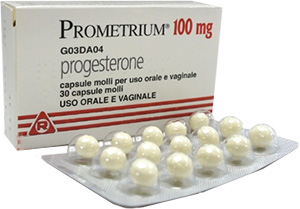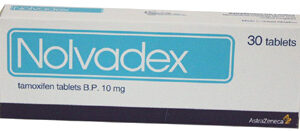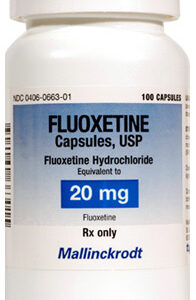Overview
Prometrium is a medication that contains progesterone, a type of female hormone involved in the menstrual cycle and pregnancy. It is utilized for various therapeutic purposes related to hormone replacement therapy and menstrual disorders, among other indications.
Therapeutic Uses
The primary application of Prometrium is to treat conditions stemming from a lack of natural progesterone in the body. This medication may be prescribed for abnormal menstrual periods, maintenance of a pregnancy in case of progesterone insufficiency, and in combination with estrogen as part of hormone replacement therapy post-menopause.
Recommended Dosage
The dosage of Prometrium depends heavily on the condition being treated and the individual patient’s needs. It typically varies and should be adjusted to the lowest effective dose to reduce the risk of adverse effects. Always adhere to the prescription advice from a healthcare provider.
Method of Administration
Prometrium can be administered orally as a capsule or inserted directly into the vagina, depending on the recommended treatment regimen. Oral consumption should be with water, and when taken at bedtime, it can help lessen dizziness, a common side effect.
Adverse Effects
Many individuals taking Prometrium may experience side effects ranging from drowsiness, dizziness, and headache to more severe responses like breast tenderness, bloating, mood swings, and blurred vision. If such occurrences become overly burdensome or persistent, seeking medical advice is prudent.
Cautions
Before starting Prometrium, divulging any medical history relating to liver disease, heart disease, or a history of blood clots is essential due to a potentially heightened risk of complications. Additionally, caution is advised when driving or operating machinery because of the drowsiness it may induce.
Potential Drug Interactions
Prometrium may interact adversely with other medications, including those metabolized by the CYP3A4 enzyme and various treatments such as ketoconazole, erythromycin, and grapefruit juice. It’s critical to review all medications with a healthcare provider to prevent harmful interactions.
Absolute Contraindications
This medication should not be used by individuals with known hypersensitivity to progesterone, history of thrombosis, undiagnosed vaginal bleeding, severe liver dysfunction, or those with a history of breast or genital cancers deeply influenced by hormones.
Maternity & Breastfeeding
During pregnancy and lactation, Prometrium administration should be under strict medical guidance. While natural progesterone is necessary for a successful pregnancy, supplemented progesterone carries potential risks. Consideration should also be given to breastfeeding mothers as the drug passes into breast milk.
Exceeding Dosage
If an overdose of Prometrium is suspected, immediate medical attention should be sought. Overdose symptoms can include severe drowsiness, dizziness, or nausea. There is no specific antidote, and treatment is usually supportive and symptomatic.
Storage Guidelines
Prometrium should be stored at room temperature away from moisture, heat, and light. Keeping this medication out of children’s reach is imperative for their safety.
Facts for Patients
Patients should be informed of the expected benefits and possible side effects of Prometrium. It is necessary to stress the importance of adherence to prescribed dosages and to schedule regular check-ups to monitor the response to therapy and adjust the treatment accordingly.





Reviews
There are no reviews yet.